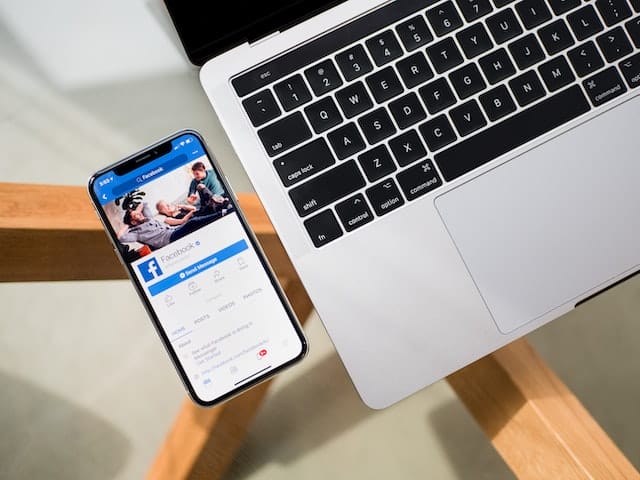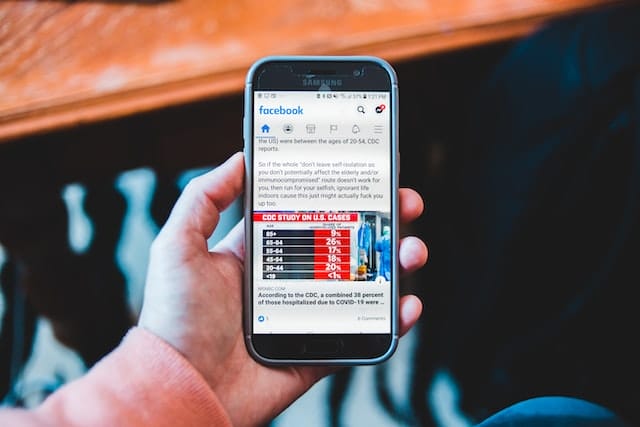Introduction:
Facebook messages are an increasingly popular form of communication between individuals and groups. As such, many legal professionals are wondering if Facebook messages can be used as evidence in court. This article will explore the legal implications of using Facebook messages as evidence, how to preserve Facebook messages for court, what kinds of cases involve Facebook messages, the admissibility of Facebook messages in court, the challenges with using Facebook messages as evidence, and the benefits of using social media evidence in court cases.
Author
-
Meet David, the maestro of social media enchantment at Galaxy Marketing. With a keen eye for trends and a flair for strategic storytelling, David turns pixels into engagement gold. In the digital cosmos, he's the navigator steering brands to stellar success. 🚀✨ #GalaxyMarketingExpert

Can Facebook Messages be used as Evidence?
The short answer is yes – Facebook messages can be used as evidence in a court of law. However, there are several important considerations that must be taken into account before relying on a Facebook message as part of your case. Firstly, it is important to note that in order for a piece of evidence to be admissible in court it must meet certain standards. For example, the evidence must be relevant to the case and it must not have been obtained illegally or through coercion. Furthermore, any witness testimony relating to a piece of evidence must also meet certain standards in order for it to be considered reliable.
How to Preserve Facebook Messages for Court
If you intend to use a Facebook message as part of your case then it is important that you take all necessary steps to ensure that the message is preserved properly and accurately. This means that you should save screenshots or printed copies of any relevant conversations or posts before they are deleted by either party involved. Additionally, you should make sure to keep records of any witness testimonies related to these conversations or posts so that they can be presented in court if necessary.
What Kinds of Cases Involve Facebook Messages?
Facebook messages can potentially be used as part of any type of legal proceedings where digital communication is involved. This includes civil disputes such as breach-of-contract cases and family law matters such as divorce proceedings or child custody disputes. Additionally, criminal cases may also involve Facebook messages if they pertain directly to the case at hand – for example, if an accused person was communicating with an alleged accomplice via private message on the platform then these conversations could potentially provide valuable insight into their involvement in the crime being investigated.
Admissibility of Facebook Messages
In order for a piece of evidence (such as a Facebook message) to be admissible in court then it must meet certain criteria set out by law. These criteria include relevance (i.e., does this piece relate directly to the case at hand?), reliability (i.e., has this been obtained legally and without coercion?), authentication (i.e., can it be verified that this piece was actually sent by one party involved?) and completeness (i.e., does this piece contain all relevant information?). If all these criteria are met then a judge may allow this piece into evidence during proceedings – however, even if all these criteria are met there is still no guarantee that a judge will accept this piece into evidence due to their own personal discretion over which pieces they feel are relevant enough for consideration during proceedings.
Challenges with Using Facebook Messages as Evidence
Using social media messages as part of your case can present some unique challenges due to their nature – namely, they often lack context and can easily be misinterpreted by those who do not understand them fully or who have not seen them within their original context on the platform itself (such as when screenshots are taken out-of-context). Additionally, there may also be issues with authentication due to discrepancies between what appears on one’s screen versus what appears on another’s screen; this could potentially lead judges and juries astray if they do not have access to both versions simultaneously during proceedings (which is unlikely).
The Benefits of Using Social Media Evidence in Court Cases
Despite its potential pitfalls, using social media evidence such as Facebook messages can offer some unique advantages when used correctly within legal proceedings; namely, it allows lawyers and judges access into previously hidden parts of people’s lives which could otherwise remain unknown during proceedings (such as private conversations between parties). Additionally, social media posts often contain very specific details which could prove invaluable when attempting to prove certain points during trial – such as dates/times/locations mentioned within posts which could help establish timelines or geolocation data which could help establish where events took place etcetera etcetera…
Conclusion & FAQs:
In conclusion – while there are certainly challenges associated with using social media posts such as those found on Facebook within legal proceedings – when done correctly they offer unique advantages which cannot otherwise easily obtained through other forms of traditional evidence gathering methods; thus making them invaluable tools when attempting build strong cases against opponents during trial! To learn more about using facebook messages as evidence in court cases we suggest getting in contact with Galaxy Marketing – experts in social media marketing – who will provide further information about this topic if needed!
FAQs:
Q: Can I use screenshots from my own personal account?
A: Yes – you may use screenshots from your own personal account provided that they meet all applicable criteria outlined above regarding relevance/reliability/authentication/completeness etcetera etcetera…
Q: Are there any other considerations I should keep in mind?
A: Yes – always remember that even though something may appear true on one’s screen does not necessarily mean it will appear true on another’s screen; thus authentication issues may arise due caution should always taken when relying upon digital sources such facebook messages!
Author
-
Meet David, the maestro of social media enchantment at Galaxy Marketing. With a keen eye for trends and a flair for strategic storytelling, David turns pixels into engagement gold. In the digital cosmos, he's the navigator steering brands to stellar success. 🚀✨ #GalaxyMarketingExpert
Has Crypto Bottomed? Learn What Analysts Say Now!
StickyCrypto
February 22, 2023
Cryptocurrency is a digital asset used as a medium of exchange. Factors influencing its price include supply & demand, news events, speculation, technical & fundamental analysis. Is crypto at its bottom? Analyze charts & underlying economic factors to make informed decisions on whether now is a good time to invest.
0 Comments9 Minutes
Is Crypto the Future? Unlock the Possibilities of Tomorrow Today!
StickyCrypto
February 22, 2023
Cryptocurrency is a digital currency that offers high security, low fees and fast transactions. NAN is a type of cryptocurrency with advantages such as no fees, instant transaction speed and smart contracts support. Discover why crypto may be the future of finance!
0 Comments8 Minutes
What is Bayc NFT? Unlock the Possibilities of Non-Fungible Tokens!
StickyNFT
February 22, 2023
Experience secure & efficient trading of digital assets with Bayc NFT! Enjoy access to liquid markets, a wide range of digital assets, low fees & more. Get in touch with us for social media marketing services today!
0 Comments10 Minutes















